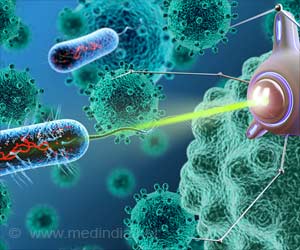Nanoparticle therapeutic enhances cancer immunotherapy — a possible new approach in treating chest wall pathology, malignant pleural effusion (MPE).

‘Nanoparticle therapeutic enhances cancer immunotherapy — a possible new approach in treating chest wall pathology, malignant pleural effusion (MPE).’





“MPE is indicative of late-stage metastatic cancer and is associated with a poor prognosis with an average survival of only four to nine months. MPE can also severely impact the quality of life as it causes breathlessness, pain, weight loss, and reduced physical activity,” says Dawen Zhao, MD, PhD, associate professor of biomedical engineering at Wake Forest School of Medicine. Novel Therapy against MPE
In addition, the abundance of tumor-associated immune cells in MPE prevents the recognition and elimination of cancer by the body’s immune system.
To overcome this normal physiological failure, the team developed a nanoparticle — liposomal cyclic dinucleotide (LNP-CDN) for targeted activation of an immune pathway called STING. This helps reprogram tumor-associated immune cells to active anti-tumor ones.
It was observed that the combination of LNP-CDN with anti-PD-L1 immunotherapy (novel immunotherapy) resulted in prolonged survival by drastically reducing the volume of MPE and inhibiting the tumor growth in both the pleural cavity and lung tissue of mice with MPE.
Advertisement
Source-Medindia










